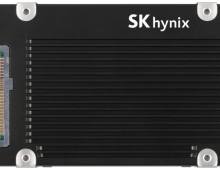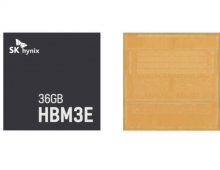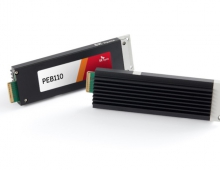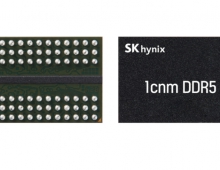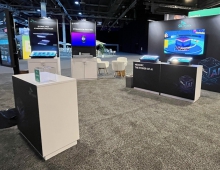
Elpida Develops 65nm-Process 1-Gigabit DDR2 SDRAM
Elpida Memory announced today that it has completed development of a 1-Gigabit DDR2 SDRAM based on new 65nm process technology.
The 65nm process allows Elpida to create the world's smallest chip products.
"The new 65nm process and our own storehouse of design technology have made it possible for the 1-Gigabit DDR2 SDRAM to become the world's smallest chip," said Hideki Gomi, Officer of Process Technology. "Given the imminent transition from 512-Megabit to 1-Gigabit products, Elpida is now geared up to produce high-performance 1-Gigabit DRAMs at lower cost," he added.
In December 2006 Elpida started mass production of the DRAMs using 70nm process technology and has been realizing significant cost reductions. The 70nm process now applies to mass production at the Hiroshima Elpida E300 Fab and the Taiwan-based Rexchip Electronics Corporation joint venture.
A smooth migration to the new 65nm process is expected, as most of the manufacturing equipment now used in the 70nm process will also be used in 65nm production. In addition, the manufacturing transition will be made easier by the process development undertaken on the mass production line at Hiroshima Elpida.
Elpida successfully applied technological advances made possible using measurement data gathered from the mass production of the company's path-breaking 70nm process products to development of the new 65nm process.
Sampling of 65nm new products will begin in December 2007. Mass production is scheduled to start in the first quarter of CY 2008. The planned second-quarter introduction of 65nm technology at Taiwan-based Rexchip is also expected to boost the company's production.
"The new 65nm process and our own storehouse of design technology have made it possible for the 1-Gigabit DDR2 SDRAM to become the world's smallest chip," said Hideki Gomi, Officer of Process Technology. "Given the imminent transition from 512-Megabit to 1-Gigabit products, Elpida is now geared up to produce high-performance 1-Gigabit DRAMs at lower cost," he added.
In December 2006 Elpida started mass production of the DRAMs using 70nm process technology and has been realizing significant cost reductions. The 70nm process now applies to mass production at the Hiroshima Elpida E300 Fab and the Taiwan-based Rexchip Electronics Corporation joint venture.
A smooth migration to the new 65nm process is expected, as most of the manufacturing equipment now used in the 70nm process will also be used in 65nm production. In addition, the manufacturing transition will be made easier by the process development undertaken on the mass production line at Hiroshima Elpida.
Elpida successfully applied technological advances made possible using measurement data gathered from the mass production of the company's path-breaking 70nm process products to development of the new 65nm process.
Sampling of 65nm new products will begin in December 2007. Mass production is scheduled to start in the first quarter of CY 2008. The planned second-quarter introduction of 65nm technology at Taiwan-based Rexchip is also expected to boost the company's production.

